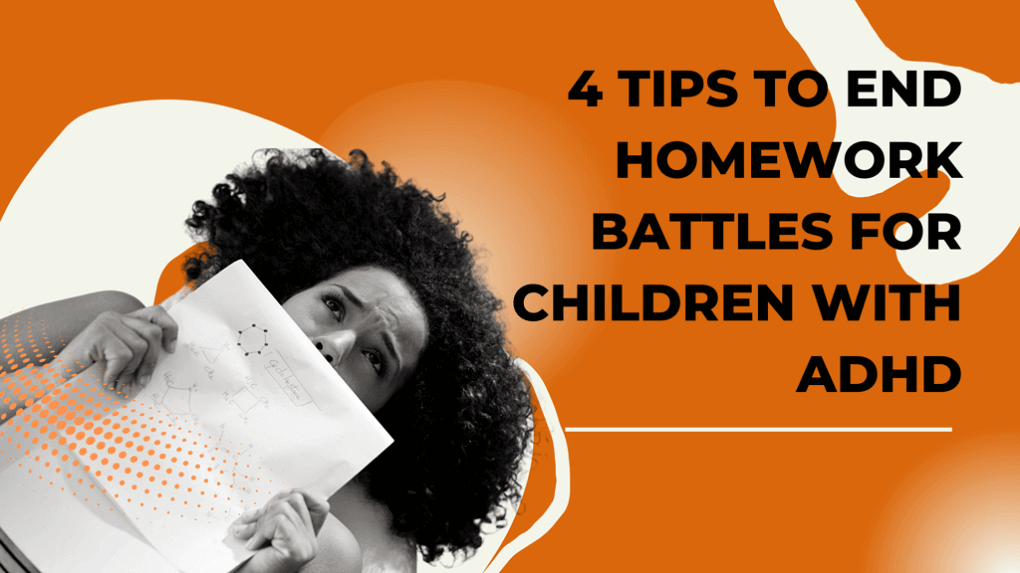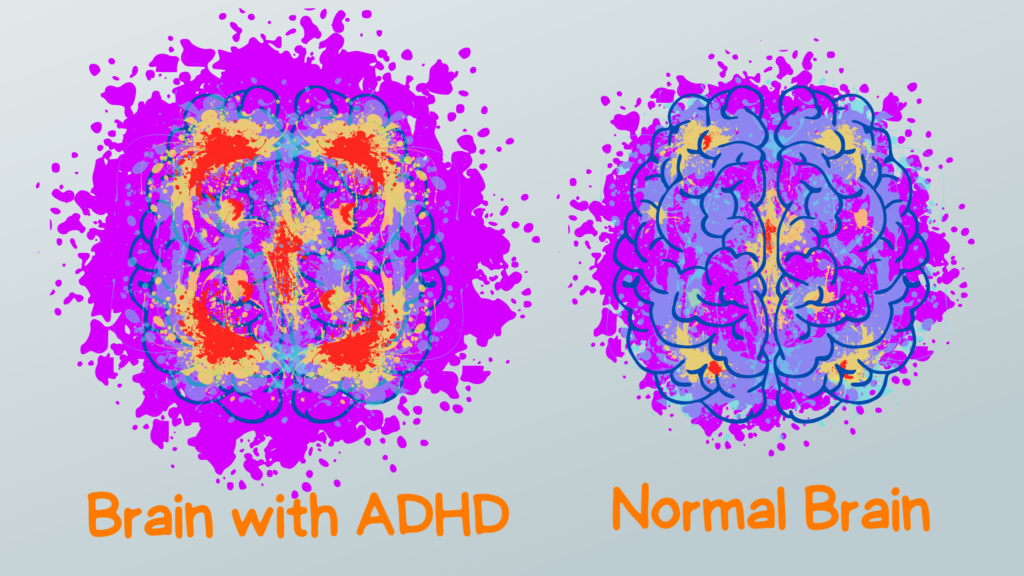
09 Sep Tips to End Homework Battles for Children with ADHD
4 Tips To End Homework Battles for Children with ADHD
For parents of children with ADHD, getting them to start—let alone finish—their homework can be daunting. Between the constant back and forth and the endless nudging and reminders, you may struggle to get things done. So if you’re tired of fighting with your child over homework, you’ve come to the right place. But before anything, please remember–your child with ADHD is not at fault.
This article shares four effective tips in our 1:1 coaching sessions to end the homework battles for children with ADHD. Look at the results these tips reaped for many students with ADHD and their parents.
You can also achieve these results by implementing the strategies discussed in the article.
As professionals in the tutoring space excelling in training students for years, we let our experience and expert knowledge guide us in implementing these techniques. And although professional and parental executions may be different, we’re confident that by sharing these tips and tricks with parents, you’ll also be able to make homework time less stressful for you and your child.
1. Start with acceptance
Accepting your child’s mental state is the first step you must take. Being parents to children with ADHD is a big challenge. It would help if you had patience when handling stressful situations with your child.
The American Academy of Pediatrics (AAP) suggests parents and teachers use behavioral therapy as the first line of treatment. Look at the image – can you feel the hyperactivity in your child’s brain?
Source: ADD Solutions NJ
Without going in-depth into the difference between a typically developing brain and a brain with ADHD, it’s important to remember that children with ADHD are capable of classroom-appropriate behavior. Giving them structure and setting clear expectations allows them to independently complete homework, chores, and other school and household tasks.
Create a parent-designed behavioral plan for your child that includes small rewards for small accomplishments and more significant rewards for bigger achievements.
Before we head to the homework tips, we must consider the common challenges children with ADHD face when starting a task. These include:
- Feeling defeated/guilty- Repeated bouts of bad scores and academic failures may make someone with ADHD feel defeated, leading to self-doubt and self-sabotage.
- Difficulty in processing information- Information processing is not easy for students with ADHD because of neurotransmitter dysfunction. Sometimes not enough neurotransmitters are released, while at times, neurons can’t catch neurotransmitters easily. These differences can sometimes make it difficult for a brain with ADHD to make meaningful connections.
- Tiredness – Constant exhaustion among children with ADHD is due to their continuous fight with themselves—from struggling to maintain focus and manage emotions to controlling, fidgeting, and getting organized.
- Medication rebound- Medication rebound refers to the re-emergence of symptoms controlled by medication, which can affect the child’s ability to complete tasks.
- Trouble focusing- Children with ADHD struggle with regulating their focus and cannot screen out distractions from their environment. Minor interruptions like outside movements, noise in the hallway, or internal thought fluctuations distract them.
- Poor time management skills- The delay in developing the prefrontal cortex in the ADHD brain is the big reason behind their poor time management skills. ADHD children cannot allocate and use their time effectively, which leads to unfinished homework every day, even after a lot of effort.
Let’s now head to our tips to end homework battles for your children with ADHD.
1. Offer choices
Do you give orders or offer choices?
Do you say:
- Today we are going to do a math assignment.
- We will do the homework right after lunch.
- You need to complete the English project before going out.
Does your conversation include similar sentences? If yes, these need to be changed right now. Such talks create tension in the minds of children with ADHD.
Children with ADHD perform better when they are offered choices/freedom. If you want to end homework battles with your child, it’s best to give him or her a chance to make decisions instead of forcing them to think or feel a certain way and controlling their actions. In many instances, children perform better in a more free-flowing scenario.
👉 Why does offering choices create a difference?
Offering freedom of choice to students with ADHD suppresses their tendency to be defiant and challenging behavior. They feel respected when they are offered options. It gives them a sense of control—they feel their opinion matters.
Replace your sentences with:
- Would you like to do your math or science homework first?
- After finishing your homework, do you want to play outside or help make snacks?
- Read any book of your choice.
Offering choices is a healthy practice – try to incorporate this tip into your routine.
2. Set up the right environment
The right working or learning environment is essential for children with ADHD and everyone. Setting up the right space can mean different things to different students. Some children prefer to study in the living room, while others may prefer the quietness of their own bedroom or a dedicated study space where they can work alone. Consider your child’s age, preferences, activities, and requirements to create a well-structured learning environment.
👉 Incorporate fun elements and essential tools
Children with ADHD face difficulty in controlling their body movements. For example, if your child fidgets a lot, you can incorporate a small squishing ball in the study area. If children are used to tapping their feet, you can stick a half-cut tennis ball on the floor on the sides of the chair.
3. Teach self-advocacy
Teaching self-advocacy will empower children with ADHD to lead their life smoothly both inside and outside the home. Self-advocacy refers to one’s capability to identify, analyze, and express what’s important to you. When a child knows how to advocate for themselves, they are able to ask for help whenever they need it without feeling embarrassed. Most importantly, self-advocacy is about realizing when you can resolve the problem and when you need the help of others.
👉 How can self-advocacy end homework battles for children with ADHD?
Self-advocacy will bring self-awareness to children that will help them in their academics. Children will be able to identify their strengths and weaknesses. Likewise, it will help them manage their emotional imbalance – a major challenge in completing the homework.
4. Reinforce praise and positive talks
Reinforcing praise and positive talks between you and your child with ADHD can significantly change behavior. Punishing or correcting children creates a brick wall between parents and children, which can only make matters worse.
Don’t wait for big achievements. If your child typically completes homework within an hour or so, praise them during times when they are able to get the job done faster—even if it’s only 10 minutes earlier.
Praise and positive talks fill the child with excitement and enthusiasm, stimulating their brain to do more.
👉 Offer both rewards and verbal praise.
You should offer both physical rewards and verbal praise. Positive reinforcement will build the idea of being rewarded for every good action, which will reinforce encouragement to do good activities like finishing homework in a timely manner, getting good grades, etc.
👉 Remember to strike a balance.
As a parent, you want to make sure that your child feels loved and that their efforts are appreciated. However, this can backfire when you overpraise your child, which can negatively impact behavior. Overpraising can make your child unappreciative of compliments. Children can become expectant of appraisal gifts. Balance is essential. Otherwise, it can flip the coin.
Don’t do away with discipline: A word from Themba Tutors
Reinforcing some effective strategies to end homework battles for children is not a bad idea. But doing all away with discipline will be a big mistake. A mix of flexibility and discipline is an excellent approach to the right parenting.
We have worked with thousands of parents weighing heavy on one side, which fosters negative behavior in their child.
These are a few of our tried-and-tested strategies to help children complete their tasks and end homework battles effectively.
However, if you struggle to help your children with ADHD to end homework battles, you can reach out to us anytime for help. Our professionals are experts in teaching and coaching children with ADHD.
Check Out Other Blogs:
⏩ Using Timers to Help Kids with ADHD Finish Their Homework and Chores
⏩ Do Kids With ADHD Rush Through Homework?
⏩ How to Get Students With ADHD to Turn in Their Homework?
————————-
Do you need help for your child with ADHD to end homework battles? Chat with Themba Tutors Today!
Our ADHD tutors travel to your home.
We travel to the following locations: Manhattan, Brooklyn, Queens, Staten Island, Bronx, Long Island (Nassau & Suffolk Counties), Westchester County, Connecticut (CT),and New Jersey (NJ).
Have a free consultation today.
Call: (917) 382-8641, Text: (833) 565-2370
Email: [email protected]
(We respond to email right away!)
References:
https://www.empoweringparents.com/article/7-ways-to-stop-the-parent-child-power-struggle-over-homework/
https://www.additudemag.com/positive-reinforcement-reward-and-punishment-adhd/
https://chadd.org/adhd-weekly/5-effective-positive-reinforcement-tips-for-your-child-with-adhd/
https://www.fastbraiin.com/blogs/blog/adhd-and-positive-reinforcement
https://www.foothillsacademy.org/community/articles/support-self-advocacy
https://www.mindtools.com/pages/article/newTCS_95.htm
https://www.additudemag.com/slideshows/homework-problems-conversation-starters-motivate-adhd-kids/
https://www.fastbraiin.com/blogs/blog/succcessful-homework-stratetgies-for-moms-with-an-adhd-child
https://www.piggyride.com/blog/7-strategies-to-help-adhd-children-with-homework-and-studies/
Craig Selinger
Latest posts by Craig Selinger (see all)
- Psychotherapy and Support Services at Cope With School NYC - April 12, 2024
- NYC Parents of Teens Support Group - April 8, 2024
- Here I Am, I Am Me: An Illustrated Guide to Mental Health - April 4, 2024







No Comments